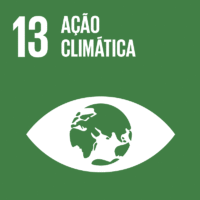Ciência-IUL
Publicações
Descrição Detalhada da Publicação
Título Revista
Futures
Ano (publicação definitiva)
2012
Língua
Inglês
País
Reino Unido
Mais Informação
Web of Science®
Scopus
Google Scholar
Abstract/Resumo
Foresight can be seen as a social cognition process involving a complex set of methods and interactive processes intended to assist policy in becoming more adaptive and forward-oriented in unpredictable environments. As a form of foresight raw material, "weak signals" can be thought of as gross, unstructured, fragmented, incomplete and inadvertent environmental data that may be refined into valuable information regarding context and further be articulated into strategically actionable knowledge. As advanced indicators that precede significant discrete one-off events and/or novel developments in the rate and direction of trends, their analysis has the potential to facilitate the real-time alignment between organisational decision-making and changing external circumstances. These predictors of future change pose fundamental problems of identification and interpretation and represent a challenge to established mental models. Thus, the practical significance of weak signals is that they can be transformed into meaningful insight for policy action. Such a value, however, does not materialise automatically. Realising this potential requires a degree of tolerance and fluidity of the collective cognitive frameworks by which weak signals can be apprehended, assessed and acted upon. This paper aims at covering the scope of perceptions and actions typically involved in the tracing and tracking of this shaping process.
Agradecimentos/Acknowledgements
--
Palavras-chave
Classificação Fields of Science and Technology
- Economia e Gestão - Ciências Sociais
- Geografia Económica e Social - Ciências Sociais
Contribuições para os Objetivos do Desenvolvimento Sustentável das Nações Unidas
Com o objetivo de aumentar a investigação direcionada para o cumprimento dos Objetivos do Desenvolvimento Sustentável para 2030 das Nações Unidas, é disponibilizada no Ciência-IUL a possibilidade de associação, quando aplicável, dos artigos científicos aos Objetivos do Desenvolvimento Sustentável. Estes são os Objetivos do Desenvolvimento Sustentável identificados pelo(s) autor(es) para esta publicação. Para uma informação detalhada dos Objetivos do Desenvolvimento Sustentável, clique aqui.

 English
English


